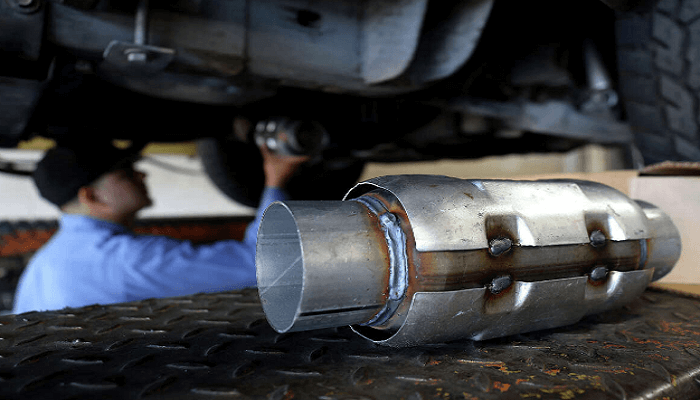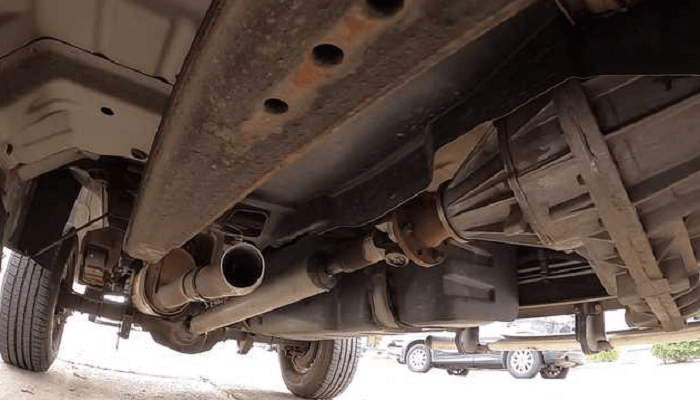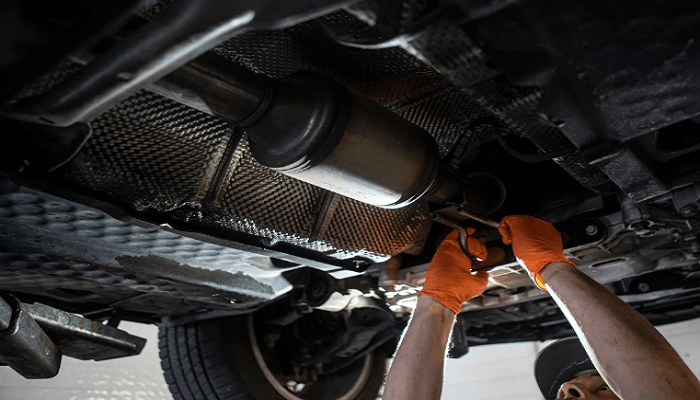Why Are Catalytic Converters So Expensive – Catalytic converters have become a staple in modern cars, playing a critical role in reducing harmful emissions that can be damaging to the environment and human health.
However, these devices come with a significant price tag that can often leave car owners wondering why they are so expensive.
The primary reason for the high cost of catalytic converters is the use of precious metals such as platinum, palladium, and rhodium in their construction, which have become increasingly valuable in recent years.
In addition to this, there are several other factors that contribute to the cost of catalytic converters, including environmental regulations, labor costs, and the complexity of the installation process.
In this article, we will delve deeper into the reasons behind the high cost of catalytic converters and answer some common questions about these essential car components.
The Basics of Catalytic Converters

Before delving into why catalytic converters are so expensive, it’s essential to understand the basics of how they work. These devices are installed in the exhaust system of cars to reduce harmful emissions.
As exhaust gases pass through the catalytic converter, they react with precious metals like platinum, palladium, and rhodium to convert harmful pollutants like carbon monoxide, hydrocarbons, and nitrogen oxides into less harmful substances like carbon dioxide, water, and nitrogen.
Why Are Catalytic Converters So Expensive?
As the world continues to battle climate change and reduce emissions, catalytic converters have become an essential component in cars.
However, with the rising demand for precious metals used in these devices, the cost of catalytic converters has skyrocketed.
These 11 reasons behind the high cost of catalytic converters and answer common questions about them.
Valuable to Thieves
One of the reasons catalytic converters are so expensive is that they are valuable to thieves. The precious metals used in catalytic converters, particularly platinum, palladium, and rhodium, make them an attractive target for thieves who can sell them for a significant profit.
According to the National Insurance Crime Bureau (NICB), there has been a significant increase in the number of catalytic converter thefts in recent years, particularly in California.
Platinum, Palladium, and Rhodium
The precious metals used in catalytic converters, particularly platinum, palladium, and rhodium, are the primary reason for their high cost. These metals are rare and have unique properties that make them effective in reducing harmful emissions.
The price of these metals can fluctuate, depending on supply and demand, and can significantly impact the cost of catalytic converters.
The Converter Itself
Aside from the precious metals, the catalytic converter itself is another reason for its high cost. The device must be made of durable materials that can withstand high temperatures and harsh conditions.
This means that the converter must be made of materials like stainless steel or ceramic, which can be expensive.
The Cost to Replace

Replacing a catalytic converter can be costly, as the device itself is expensive, and the installation process can be labor-intensive.
The cost to replace a catalytic converter can range from a few hundred dollars to over a thousand dollars, depending on the make and model of the car.
Environmental Regulations
Environmental regulations, particularly in California, have also contributed to the high cost of catalytic converters. California has some of the strictest emissions regulations in the world, and car manufacturers must comply with these regulations to sell their vehicles in the state.
This has led to the development of more advanced catalytic converters, which can be more expensive.
Honda Vehicles
Honda vehicles are known to have higher catalytic converter theft rates due to their design. The converters in Honda vehicles are located closer to the ground, making them easier to access and steal.
This has led to an increase in the cost of replacement catalytic converters for Honda owners.
Labor Costs
The installation process for catalytic converters can be labor-intensive, requiring specialized tools and expertise. As a result, labor costs can significantly impact the overall cost of replacing a catalytic converter.
The Rarity of Precious Metals
The rarity of precious metals used in catalytic converters also contributes to their high cost. As these metals become scarcer, their price increases, and so does the cost of catalytic converters.
Catalyst Deactivation
Over time, the precious metals in catalytic converters can become deactivated, reducing their effectiveness in reducing harmful emissions. This means that the catalytic converter must be replaced, further adding to the overall cost of owning a car.
DIY Repairs Are Not Recommended
Due to the complexity of the installation process, DIY repairs on catalytic converters are not recommended. Not only can it be dangerous, but it can also cause further damage to the car, leading to even higher repair costs.
The Cost of Gold
While platinum, palladium, and rhodium are the primary precious metals used in catalytic converters, gold is also present in small amounts.
However, the amount of gold in a catalytic converter is not significant enough to significantly impact the cost of the device.
How Much is A Stolen Catalytic Converter Worth?
The value of a stolen catalytic converter can vary depending on the type of car and the number of precious metals present.
However, according to the NICB, a stolen catalytic converter can be sold for anywhere between $20 and $240.
How Much Precious Metal is in A Catalytic Converter?
The amount of precious metal in a catalytic converter can vary depending on the make and model of the car. However, on average, a catalytic converter contains between 3 and 7 grams of platinum, palladium, and rhodium.
Can A Car Run Without A Catalytic Converter?

A car can technically run without a catalytic converter, but it is not recommended. Without a catalytic converter, the car will emit harmful pollutants that can be harmful to the environment and human health. In addition, driving without a catalytic converter is illegal in many states.
Will Insurance Cover a Stolen Catalytic Converter?
Whether or not insurance will cover a stolen catalytic converter depends on the type of coverage you have. Comprehensive coverage typically covers theft, including stolen catalytic converters.
What Cars Are The Hardest to Steal a Catalytic Converter?
Cars with higher ground clearance, such as SUVs and trucks, are typically more difficult to steal catalytic converters from due to their design.
In addition, cars with anti-theft devices and alarms can also be more challenging to steal catalytic converters from.
Conclusion
Catalytic converters play a crucial role in reducing harmful emissions from cars, but their high cost can be a significant burden for car owners. The primary reason for their high cost is the precious metals used in their construction, particularly platinum, palladium, and rhodium, which have become increasingly valuable in recent years.
Additionally, factors such as environmental regulations, labor costs, and the complexity of the installation process also contribute to the overall cost of catalytic converters.
While owning a car with a catalytic converter can be expensive, it is essential for reducing harmful emissions and protecting the environment.